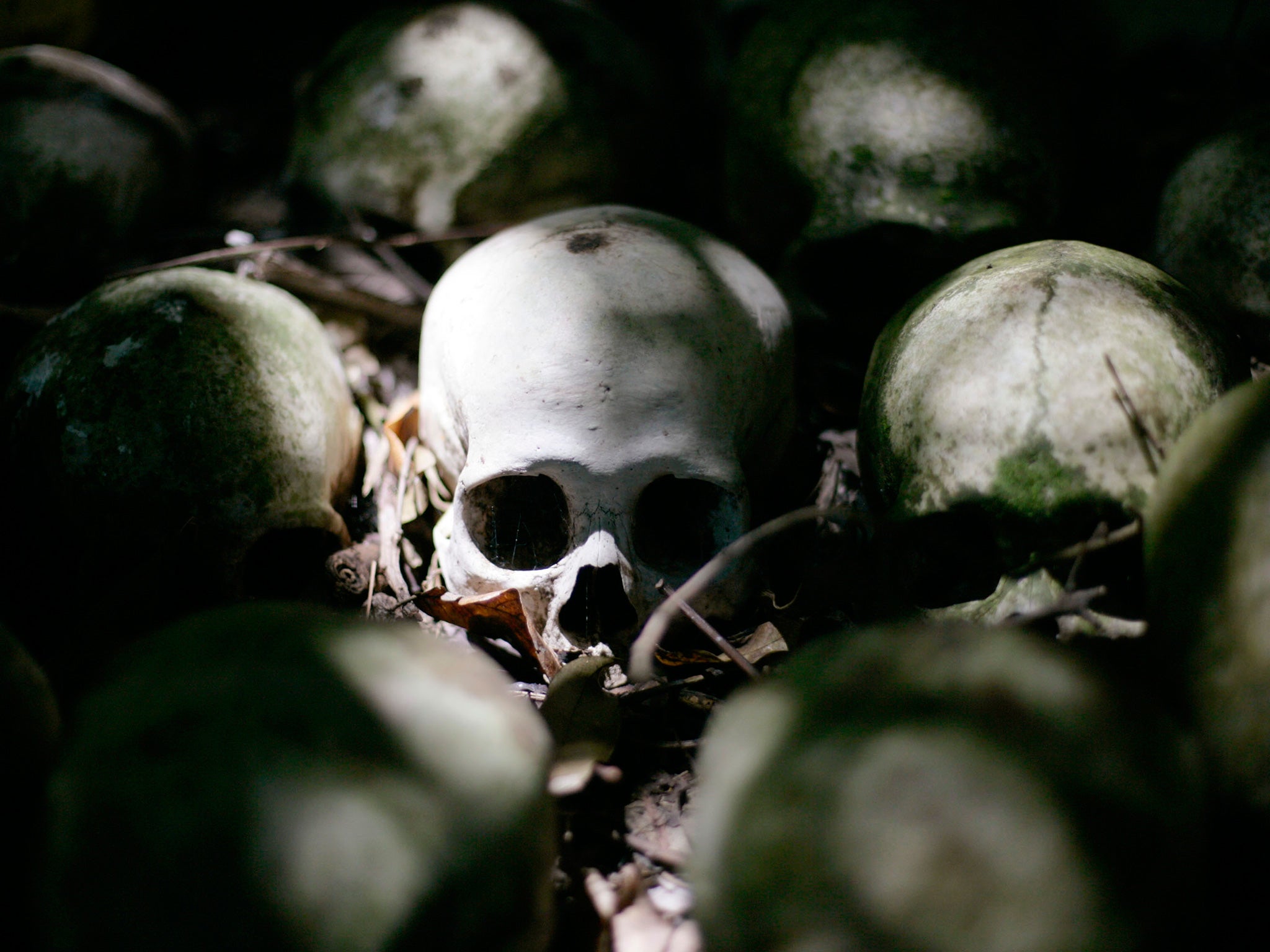Body farms: British researchers looking for site to set up laboratory for dead human remains
Backers of the project face daunting hurdles in creating the eighth such facility in the world

The delicate task of finding a site to host Europe’s first open air laboratory for rotting human remains could begin next year in an attempt to provide fresh insight for police investigating cases of murder and missing people.
British researchers are behind a pan-European effort to set up a so-called “body farm” to allow forensic experts to examine how factors – including insects, injuries and illness – all affect the decomposition process.
A better understanding of how bodies change after death is essential for accurate assessments of times and causes of death to help police investigations.
But backers of the project face daunting hurdles in creating the eighth such facility in the world, not least the availability of dead bodies, public opinion and legal changes needed to allow a project to go ahead in the UK.
An attempt to set up a unique 30-acre centre in Lincolnshire in 2010 backed by £1.5 million of private cash foundered amid disputes between universities and a lack of official support for the project.
A group of forensic anthropologists will learn next year if they have received funding for a four-year study to examine why previous attempts have failed and to begin an assessment of potential sites across Europe.
A number of British universities already host sites for human taphonomy – the study of what happens to a body after death – but they are limited to using animal remains, usually pigs, to replicate the likely effects on human bodies. In a study ten years ago, experts from the Natural History Museum left pig carcases in empty buildings in London to discover how quickly the decomposition process worked.
Dr Anna Williams, who is behind the planned new research project, said British forensics was in danger of falling behind countries that have body farms, and said that studies on pigs had obvious drawbacks. “They don’t have cancer, they don’t smoke, and they don’t eat curries,” she said.
The United States already has six body farms and a new site in Australia is due to open in January. Dr Williams said that research in those centres had shown that bodies decomposed at different rates depending on whether they were clothed, naked, submerged in water or stuck in the boot of the car.
But critics pointed out that the difficulty of obtaining bodies meant that research was based on few samples and could not be relied on. “That’s one of the main arguments against having a human facility,” said Dr Williams of the University of Huddersfield. “That’s why we need to coordinate and have a central facility in Europe.”
Richard Arnold, the businessman behind the private body farm project, said that he had 14 people on his books who had expressed a wish that their bodies be used once they died for forensic research.
Work using pig substitutes in recent years has helped to debunk long-established theories about the effect of injuries on decomposition, said Peter Cross, a lecturer in forensic anthropology at the University of Central Lancashire, which runs a 13-acre site at an undisclosed location in the northwest of England. His department has also carried out research on the decomposition of bodies inside suitcases and wheelie bins.
He said that opinion was divided in the scientific community over the worth of a centre to study human remains. “I think at the moment, the drawbacks are too significant,” he said.
Dr Williams has met with officials from the Home Office and the Department of Health to discuss the prospects of setting up a UK body farm. It would require a change of regulations by the Human Tissue Authority which regulates organ donation and the use of human remains for research.
While people can donate their bodies for medical research, they cannot currently do the same for body farms. Sarah Bedwell, its director of regulation, said if the practice was allowed it would want to ensure that “practices and procedures governing the activity were up to the standard of those in the other sectors we regulate”.
How a body farm works
Down at the body farm in Knoxville, Tennessee, up to 190 bodies are scattered around the undergrowth. Across the two-acre site, the bodies are arranged in a variety of settings to mimic crime and accident scenes.
Some are buried in shallow graves, others are inside vehicles or submerged under water. Its research centre is also home to the largest collection of human skeletons – 1,300 – anywhere in the United States.
The site is behind high fences to deflect the ghoulish. Mr Arnold’s plan for the privately-run centre in Lincolnshire – which never went ahead - involved 24-hour security using ex-military men.
British researchers say that local conditions, insects, and fauna mean that research in the US cannot be compared with elsewhere in the world.
As well as being used to train specialist police search dogs, they have provided invaluable practice grounds for student forensic scientists. Police have shown growing interest in more specialist research to understand how decomposition affects tattoos, and the impact of shotgun wounds on a rotting body.
Subscribe to Independent Premium to bookmark this article
Want to bookmark your favourite articles and stories to read or reference later? Start your Independent Premium subscription today.

Join our commenting forum
Join thought-provoking conversations, follow other Independent readers and see their replies